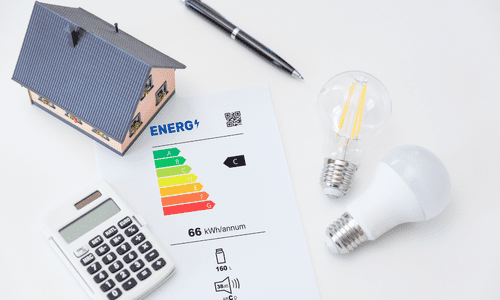The federal government of the United States passed the Inflation Reduction Act (IRA) of 2022, which stands to be the most significant government climate investment in the country’s history. By 2030, the government is targeting to cut down greenhouse gas (GHG) levels by 31-44% below 2005 levels through this act.
This act will incentivize the adoption of higher-efficiency, all-electric appliances that will substantially cut down on electrical usage costs per household. As such, the act recognizes the role that highly efficient, variable-capacity heat pumps and appliances will play in both reducing energy costs for American citizens as well as slashing the overall domestic GHG emissions.
What does this mean for HVAC owners?

Honestly, we cannot think of a better time to upgrade your heating and cooling systems if you are a homeowner. The IRA of 2022 promises point-of-sale rebates as well as tax credits for installing high-efficiency HVAC systems. These benefits can easily range into thousands of dollars.
A high-efficiency heat pump can not only help save on energy bills but also improve the comfort of your home. And now, with this unprecedented incentive to support the conversion of homes from fossil-fuel-based conventional heat pumps to high-efficiency, all-electric solutions, heat pump upgrades are simplified significantly. A modern, high-efficiency heat pump has several benefits for your HVAC system. They include:
- Carbon footprint reduction of your home
- Reduction in the utilization of fossil fuels to maintain your home comfort
- No harmful combustion byproducts generated
- The installation process may qualify for a tax credit worth $8000 if the homeowner is eligible and meets the income requirement set by the IRS.
What are the incentives for my HVAC upgrade?
The Inflation Reduction Act has introduced multiple incentives tied to home comfort solution upgrades to high-efficiency, all-electric systems. They include:
1. Energy Efficient Home Improvement Credit (25C)
Effective from January 1, 2023, homeowners installing the highest efficiency tier HVAC products can now avail of a higher tax credit value of 30% of installation costs, up from 10% earlier.
- For qualified heat pumps, this can mean savings of up to $2000.
- For qualified furnaces and air conditioners, the savings can be as high as $600.
- Moreover, for higher efficiency equipment installed after 31 December 2023, the existing tax credits worth $300 for heat pumps are also retroactive.
2. HOMES Rebate Program
Homeowners installing higher-efficiency HVAC equipment can save up to $8000 in installation rebates. However, this depends on IRS income requirements and the modeled energy savings. Furthermore, the update to the act also considers qualified home energy audits as improvements that are eligible for up to $150 in tax credits.
3. High-Efficiency Electric Home Rebate Program
HVAC consumers across states that have set up their individual programs and applied for funds can begin qualifying for income-dependent rebates. For eligible homeowners and miscellaneous individuals that are qualified, rebates are
- Up to $2500 for electric wiring
- Up to $4000 for electric load service center
- Up to $1600 for ventilation, air sealing, and insulation
- Up to $8000 for all-electric maximum efficiency heat pumps
However, the maximum rebate per household is capped at $14000, which is still a significant saving in terms of HVAC costs. Homeowners should also know that the high-efficiency electric home rebate program cannot be clubbed with the home rebate program. The best way to check eligibility and figure out total savings would be through consultation with a tax professional for specific and relevant details.
How can my HVAC system be more energy efficient?

HVAC units are critical home systems that use a lot of energy. One way to stay energy-efficient is for your HVAC systems to use less energy. Other than buying the latest, most expensive, and most efficient systems, there are also several other steps you can take to improve the efficiency of your HVAC unit. And most of these measures are surprisingly cost-effective, such as
Unblocking indoor vents
Blocked indoor vents can prevent the free flow of air to and from these lines and drastically impact your HVAC systems’ performance. It is critical that you wipe down or vacuum the supply and return vents to keep them free of dust.
You should also change the filters regularly and make sure nothing blocks the vents, such as large furniture near the areas. If your vents cannot maintain a steady flow of air, the HVAC system will have to work harder, increasing energy usage and bills.
Cleaning condenser unit
The same logic applies to the condenser unit or the unit installed outside. Since it’s likely to be in a wooded area, keep it free of debris and the bushes and hedges around it trimmed to ensure optimal performance. In this case, scheduling regular maintenance by professionals can be helpful as they are often installed out of reach.
Adjusting thermostat settings
Even a minimal adjustment to your thermostat – by even 5 or 6 degrees – can significantly impact your energy utilization and reduce your power bills. Consider moving it down during winter and up during the summer to reduce strain on your HVAC systems and save money.
As an alternative, you can also upgrade to a smart thermostat that can adjust your home’s temperature automatically, even when you’re not around.
Blinds and curtains
The blinds and curtains installed in your home can have a surprising effect on the overall temperature of your home. For example, keeping them shut, especially during the summer daytime, can help you reduce the indoor temperature, reducing the stress on your cooling system.
Conversely, keeping them open throughout the day keeps your home warmer in the winter. If you use them smartly, you will reduce the energy consumption of your HVAC units and optimize your power expenses.
Regular preventive maintenance
While there are several things you can do on your own to ensure your HVAC systems work efficiently, nothing can be as impactful as getting professional maintenance done. Having technicians inspect, clean, and maintain your unit regularly will optimize performance and energy usage, lower power bills, and extend the life of your equipment.
Minor problems that have the potential to turn big can also be detected early by trained professionals, further benefiting you in the long run.
Contact River Valley for your HVAC needs
At River Valley, we specialize in AC and heating system installation and repairs and also offer comprehensive annual maintenance plans. Get in touch with us today to bank on professional guidance about your new high-efficient HVAC systems from the best in the business!
